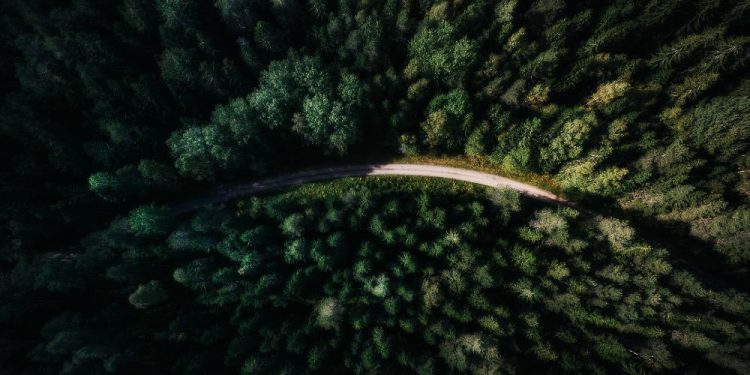(WND)—Everywhere activists, corporations, government officials, even consumers are talking about green energy. The idea is to move away from fossil fuels to green energy, because of a climate emergency – even though 1,600 scientists say there is no emergency.
Diesel power plants are therefore very, very bad. Hydroelectric and geothermal projects are good. But those green advances are being blocked, and diesel generators are being kept in operation, in one location because of a ban on roads.
It is the Pacific Legal Foundation that explains a lawsuit has been filed by the Inside Passage Electric Cooperative against Joe Biden’s Agriculture Department because it won’t allow roads, any roads, in the Tongass National Forest.
“The cooperative provides power — at cost — to several small, predominantly indigenous communities located within the Tongass. IPEC seeks to build several hydroelectric and geothermal projects to replace the expensive diesel generation that these communities currently rely on. But the USDA’s prohibition on roads — including gravel and dirt roads — in the Tongass makes the construction and maintenance of these projects infeasible because they would be accessible only by helicopter,” the foundation reported.
Luke Wake, a lawyer for the organization, said, “Congress has mandated that regulation must account for both preservation and reasonable economic use. When executive agencies wrest legislative power from Congress, they tend to pursue whatever goal they have to the exclusion of all other priorities — as is happening here.”
The organization noted that only Congress can make laws, and lawmakers never gave the USDA authority to impose a blanket ban on road work across tens of millions of acres of forests.
“In the name of conservation, the USDA’s rules are keeping remote Alaska communities dependent on diesel for power generation when green alternatives are available,” charged IPEC’s Jodi Mitchell. “Diesel is one of the most expensive sources of power generation. As a result, these communities pay some of the highest electricity rates in the state and among the highest in the country.”
The complaint notes that the USDA’s rule prevents roads on 58.5 million acres of national forest lands, about 2% of the nation.
“The department has made no allowance for road access necessary for economically important and socially beneficial energy infrastructure projects,” the IPEC charges. “While the roadless rule allows for a few very limited exceptions, there is no exception for roads needed to develop hydroelectric or geothermal projects, or for any other project that requires road access – regardless of how carefully planned the project may be to avoid environmental concerns.
Actually, the complaint explains that the Organic Administration Act of 1871 lists that national forests be open to the public for “all lawful purposes,” and even the Wilderness Act of 1964 bans roads in wilderness areas, but not in other areas.
“Despite Congress’ manifest desire to allow roads in national forests as needed for reasonable public access and use, the department claims to have found authority to categorically ban roads in nebulous statutory language,” the complaint charges.
It is under that authority that the department imposed its roadless rule to “harm local communities.”
That comes through prevention of the utility’s plan to “pursue geothermal projects … to provide clean energy that would reduce utility costs and would generally benefit the 900+ residents of Hoonah.”
Even accessing “existing facilities, powerlines, and diversion pipes” is problematic under the USDA, the complaint said. Much servicing now is done by helicopter.
-
Learn the TRUTH about Gold IRAs and how most precious metals companies play dirty.
Content created by the WND News Center is available for re-publication without charge to any eligible news publisher that can provide a large audience. For licensing opportunities of our original content, please contact licensing@wndnewscenter.org.





